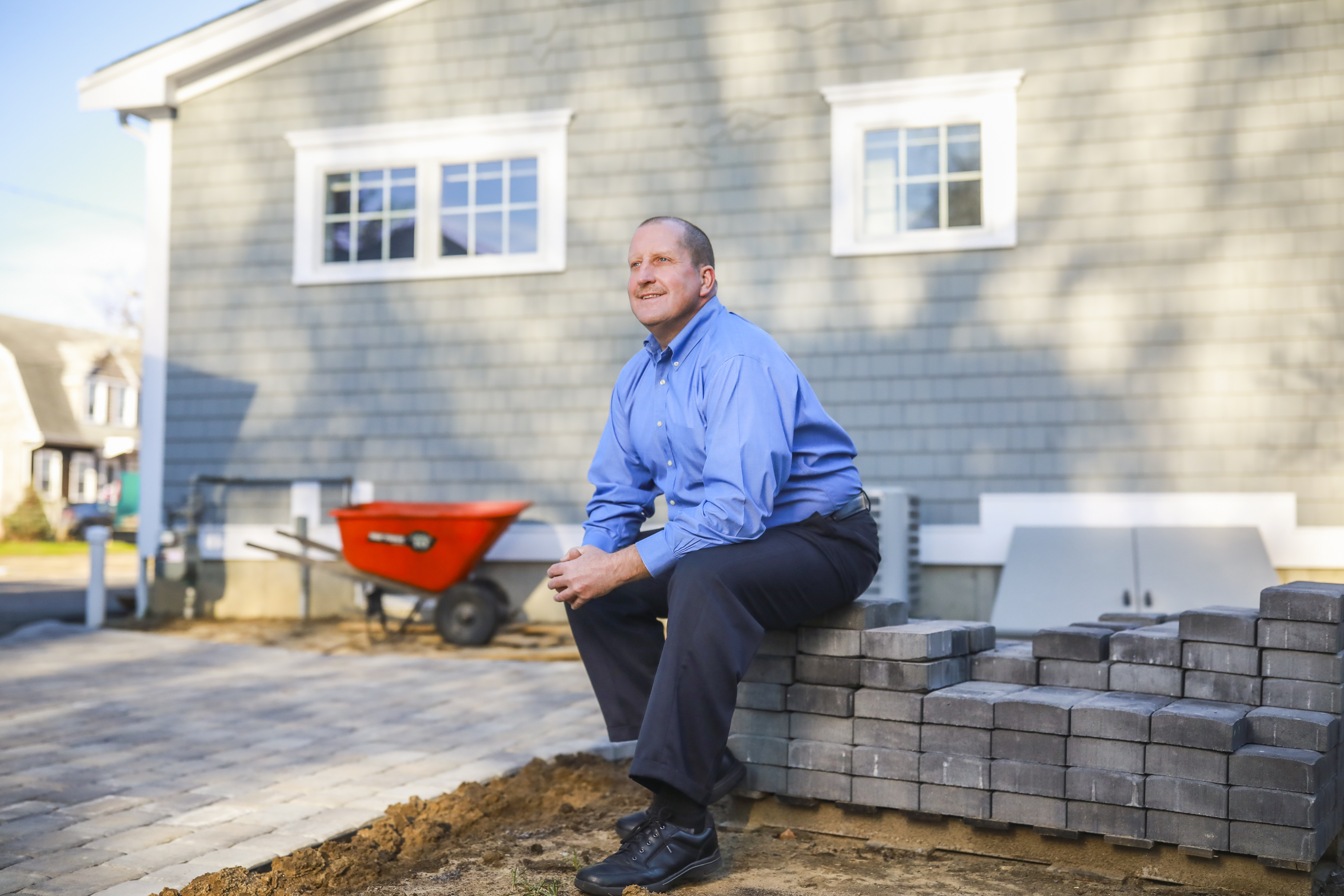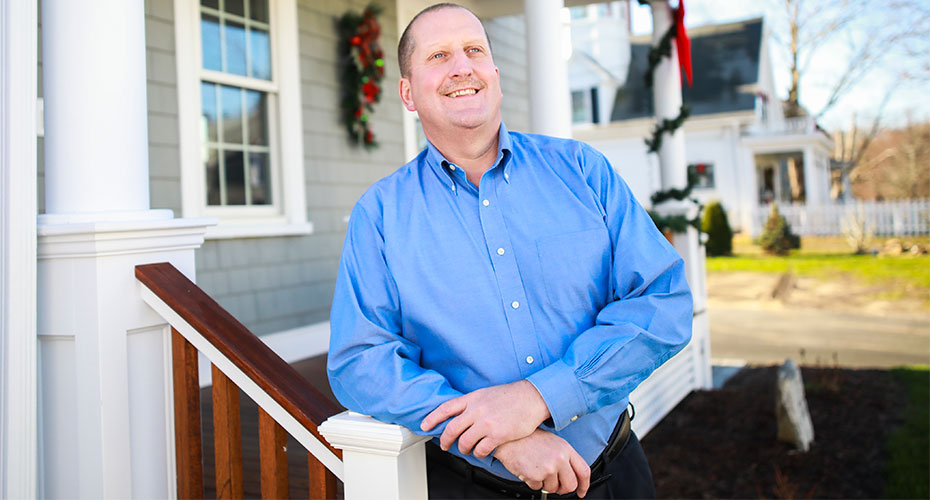Dec 14, 2020
Joe's journey
This year, many of us have grappled with a sense of loss – lost time with loved ones, lost opportunities to make new memories, for some, tragically, loss of health or life. Joe Montminy was diagnosed with early onset Alzheimer’s in 2017 at age 54, an experience that has given him special insight into the nature of loss. Coverage writer Rachel Coppola asked Joe to reflect, in his own words, on what this year has been like for him – and the lessons about life, grief and gratitude he has to share.
Like many people, I had a lot of reasons to be excited about 2020. I had planned exciting vacations—to attend a wedding in Napa Valley in June, to visit old friends in Montana and to hike throughout Yellowstone with family. I had another wedding on the calendar, too—this one with family in Greece in September. And I was eager to spend time with my wife and two adult sons, as well as my close friends and family, especially my nieces and nephews.
The COVID-19 pandemic broke out in the U.S. a few weeks before another event I was looking forward to attending—an Alzheimer’s Association Advocacy Forum in Washington, D.C.
I was diagnosed with early onset Alzheimer’s disease in 2017. At that time, I was in my early 50s, and I had an inkling something wasn’t quite right. I had worked in the insurance industry for 35 years and had spent the last 12 years at a firm in Connecticut managing their annuity research team. In addition to our daily research and reporting, I consulted with national and international companies—often delivering presentations to their executives—and spoke at conferences. Slowly, I began noticing it was a lot harder for me to do the same presentation I had done 30 or 40 times before. I started taking prolific notes at work so I could remember what I needed to do and when. I also started working longer hours and taking work home to compensate for my decreasing productivity. I didn't want anyone to notice my decline.
At the urging of my wife and family doctor, I went to a neurologist in Hartford. She conducted multiple tests, ordered a CAT scan, MRI and comprehensive neuropsychological test. When those tests were completed, she met with me and told me my hippocampus—a part of the brain that controls learning and memory—had shrunk more than 75%. I was diagnosed with early onset Alzheimer’s disease.
“I think you should retire,” she told me.
“When?” I asked.
“Today,” she said.
Based on the normal progression of the disease, she said I might have about 10 more years to live. The first three to five would be good, but after that, she said I could expect my memory and cognitive function to slowly deteriorate. There was no way to know whether that decline would be slow or fast. Either way, I would eventually need to live in a nursing home because I would not be able to take care of myself and would not recognize the people that I love.
I was shocked, devastated and in disbelief. I got second opinions and met with neurologists and specialists in Philadelphia and New Haven. I did as much as I could to educate myself about the disease and exhausted all possibilities for clinical trials that might help me. I got my legal and financial affairs in order and grappled with what this diagnosis would mean for my family and me.
And finally, during the past three years, I worked hard to adjust to the reality of my situation, to accept my diagnosis and enjoy my life.
Every day since that diagnosis has been a gift that I have cherished.
Last fall, I traveled throughout Europe with my wife and close friends and hiked the German Alps. I took walks with friends and surrounded myself with the people I love. I ate better and stayed physically, mentally and socially active, which not only improved my quality of life but also has been shown to help slow the progression of this disease.
And I planned for the future. We bought a retirement home in Plymouth, Mass., which is 120 years old, and began transforming it top to bottom. This included putting on an addition so in a few years when my health declines, I can stay here for as long as possible, living on the first floor.
Then COVID-19 struck this spring and pulled the rug out from under all of us, emotionally, socially and financially.
We are all mourning the loss of normal life (and none of us ever knows what tomorrow will bring), but some of us are feeling this loss more acutely—folks who are advanced in years, those with a terminal illness, and those of us who see a path of declining function ahead.
I am healthy, I am happy, and I am grateful for each day, but I know my time is running out.
Recently, like many people, I’ve begun to feel more alone and isolated, especially during these colder and shorter days, when there is less opportunity to get outside.
I have been in Plymouth all year remodeling our house, which is across the street from my mother’s house, and my wife and adult sons have been in Connecticut. We have only visited each other a handful of times since the pandemic hit so that we minimize the risk of infection. It’s been really, really hard to be apart. This was the first Thanksgiving we have been apart since my sons were born 24 and 25 years ago.

But I know we are not alone—many families are making tough choices and spending the holidays apart this year.
During these hard times, I continue to focus on what I did when I was first diagnosed—to adjust to the reality of my situation, to accept it and to do everything I can to enjoy my life.
And I continue to look forward—to joining an early onset Alzheimer’s support group in January. To appreciating every day that I can feel joy or bring joy to someone else’s life. To physically being with my family soon. And to putting the finishing touches on my home—the home that will see me through the next phase of my journey.
Did you find this article informative?
All Coverage content can be reprinted for free.
Read more here.
PHOTOS BY NICOLAUS CZARNECKI

